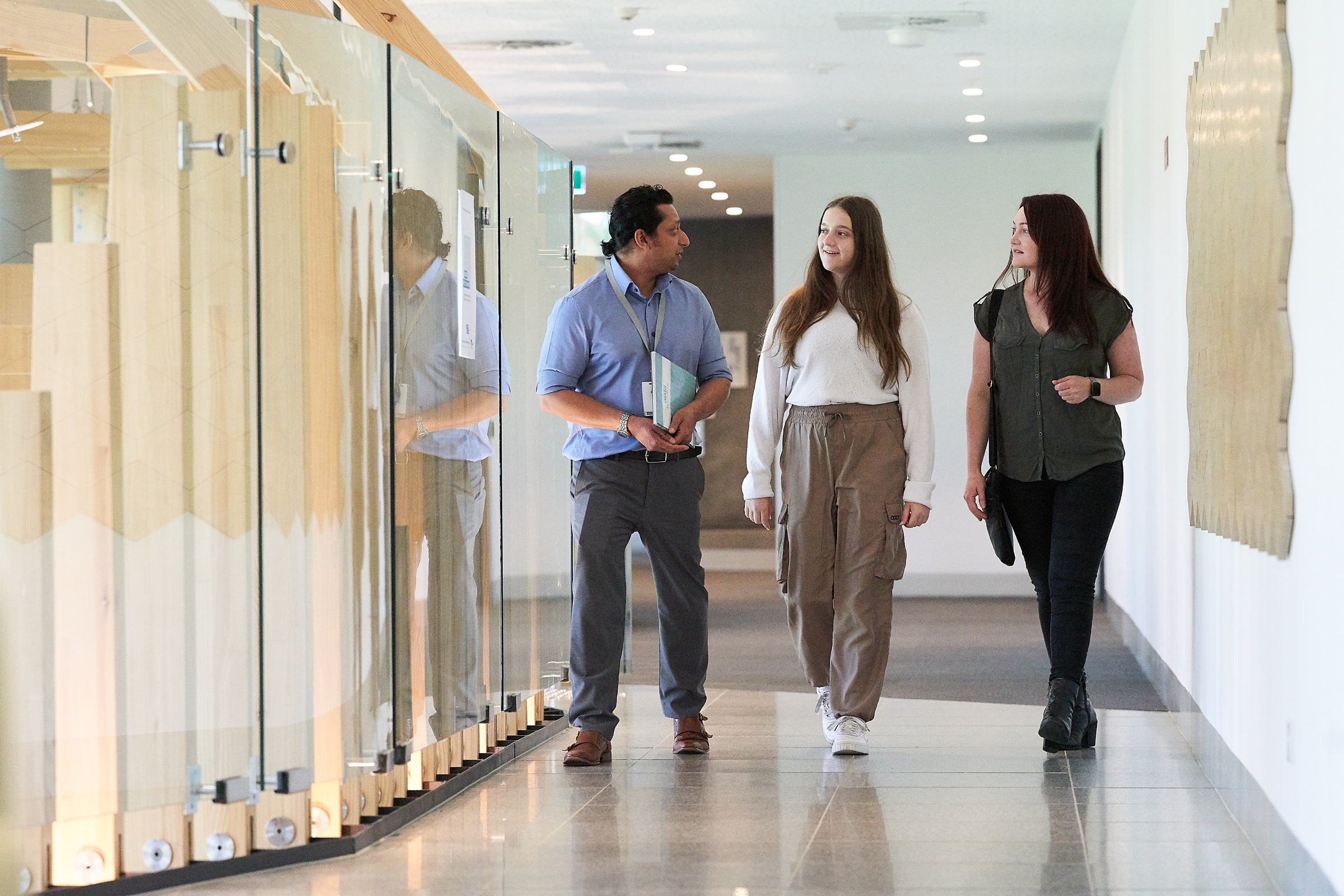
Orygen researchers will lead the exploration of new technology to achieve more personalised diagnoses and treatments of youth mental health via $2.2 million in funding from the Medical Research Future Fund (MRFF).
Two projects, one led by Dr Dominic Dwyer and the other by Dr Cassandra Wannan, both from Orygen and the University of Melbourne, have received National Health and Medical Research Council (NHMRC) Investigator Grants, and will further Orygen’s research exploring innovative ways to integrate cutting-edge technologies into the treatment of mental health conditions.
Dr Dwyer has received a $1.6 million grant that will allow him to establish and lead a mission to achieve personalisation of mental healthcare for young people by 2030. He will use Artificial Intelligence (AI) to provide clinicians, young people and families with tools to make the best decisions regarding a young person’s care, particularly in the area of psychosis.
“Psychosis can be a life-threatening mental illness that needs to be prevented, and while Australia has world-class preventative clinics, our current treatments only work for around 50 per cent of people,” Dr Dwyer said.
“We desperately need to improve this statistic by understanding why young people are at-risk of psychosis and how to better prevent their first episode of illness.
“We are thrilled to receive this funding, which will enable us to explore how cutting-edge AI techniques can be used to reform care by personalising preventative therapies.”
Dr Wannan has received $674,400 to further her research into supporting the early diagnosis of mental ill-health and frameworks which help clinicians develop treatments personalised to each patient. She and collaborator Dr Warda Syeda from the University of Melbourne have developed a tool called Multi-Axial Profile Scores (MAPS), which considers each individual to have a unique mental health ‘fingerprint’.
“Mental ill-health is a leading cause of disability in people aged under 25, and we know early diagnosis and intervention are critical for reducing disability and improving outcomes,” Dr Wannan said.
“However, there are currently no clinical decision support tools available for use in child and youth mental health settings, and our research aims to fill this gap.
“We are developing a tool that captures an individual’s unique mental health ‘fingerprint’, so that effective, appropriate treatments can be offered – treatments specific to the young person’s context, background and experience.”
Chief of Research and Knowledge Translation at Orygen, Professor Eóin Killackey, welcomed the funding and said Orygen is leading the way in terms of integrating technology into youth mental health care.
“Our work with existing and emerging technologies – such as Artificial Intelligence and Virtual Reality – is transforming the delivery of youth mental health care,” Professor Killackey said.
“We are proud to be a global research leader in this area, attracting some of the world’s best academics and clinicians to work together with young people to tackle these challenges and find new ways to improve the lives of young people.”
National Health and Medical Research Council’s (NHMRC) Investigator Grants scheme are part of the Medical Research Future Fund, and provide the highest-performing researchers at all career stages with a significant research support package to ensure Australians have access to evidence-based, authoritative health advice.